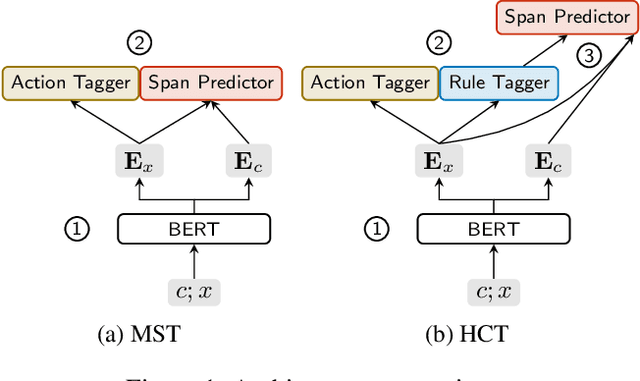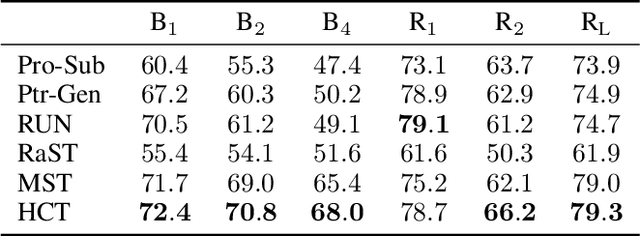Hierarchical Context Tagging for Utterance Rewriting
Paper and Code
Jun 22, 2022



Utterance rewriting aims to recover coreferences and omitted information from the latest turn of a multi-turn dialogue. Recently, methods that tag rather than linearly generate sequences have proven stronger in both in- and out-of-domain rewriting settings. This is due to a tagger's smaller search space as it can only copy tokens from the dialogue context. However, these methods may suffer from low coverage when phrases that must be added to a source utterance cannot be covered by a single context span. This can occur in languages like English that introduce tokens such as prepositions into the rewrite for grammaticality. We propose a hierarchical context tagger (HCT) that mitigates this issue by predicting slotted rules (e.g., "besides _") whose slots are later filled with context spans. HCT (i) tags the source string with token-level edit actions and slotted rules and (ii) fills in the resulting rule slots with spans from the dialogue context. This rule tagging allows HCT to add out-of-context tokens and multiple spans at once; we further cluster the rules to truncate the long tail of the rule distribution. Experiments on several benchmarks show that HCT can outperform state-of-the-art rewriting systems by ~2 BLEU points.
 Add to Chrome
Add to Chrome Add to Firefox
Add to Firefox Add to Edge
Add to Edge